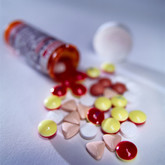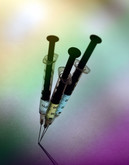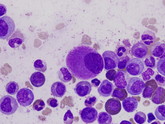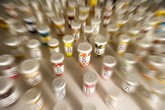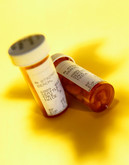Generics
EMA halts sales of unreliable generics
The European Medicines Agency (EMA) has recommended that the sales of several generics, including those produced by Teva and Novartis, be suspended after data on their approval was found to be unreliable.
Launches, approvals and court cases for Sun Pharma
India’s largest drug manufacturer Sun Pharmaceutical Industries (Sun Pharma) has launched ready-to-administer anticancer drug gemcitabine in six European countries and gained approval for a generic version of prescription cholesterol medicine Crestor, while also facing legal action from protesting employees.
FDA approves first generic nilutamide for treatment of prostate cancer
US generics producer ANI Pharmaceuticals (ANI) announced on 18 July 2016 that it had received US Food and Drug Administration (FDA) approval for its generic version of prostate cancer treatment Nilandron (nilutamide).
The satisfaction of healthcare payers, patients and physicians with generic imatinib
With the begining of the era of tyrosine kinase inhibitors (TKIs), chronic myeloid leukaemia (CML) became a chronic disease, in which good responding patients usually have a life expectancy similar to the age- and sex-matched normal population [1]. In many countries, the first-line treatment of chronic phase CML is imatinib mesylate (IM). Whereas, especially in some developed countries, second generation TKIs (dasatinib, nilotinib) which have deeper and faster responses, but are also more expensive than IM, are utilized in the upfront setting. The introduction of TKIs increased the prevalence of CML, and optimal responders to IM should continue therapy indefinitely, so the originator TKI treatment (Gleevec) surely put a strain on healthcare providers even in developed countries.
Extortionate increases in prices of 32 drugs a result of loophole in NHS pricing structure
An investigation by The Times has exposed a small group of UK-based entrepreneurs to have profited vast amounts of money from hiking up the costs of 32 medicines for common conditions by GBP 262 million a year, a 12,500% increase.
Ways to reduce drug costs in Australia
Drug costs in Australia are increasing at an alarming rate. This is driven mainly by expensive biological therapies, antiviral therapies for HIV and hepatitis C and new cancer treatments.
AES position statement on substitution of generic anti-epileptics
A paper by the American Epilepsy Society (AES) discusses how the society’s position on generics substitution of anti-epileptic drugs has changed according to the results of bioequivalence studies [1].
Healthcare alliance proposes ways to reduce drug costs in the US
Recent price increases in the US have prompted an alliance of doctors, pharmacists and health plan groups to release a document that outlines 12 policy proposals that it hopes will provide the framework for a major debate in Congress.
Reasons for the success of a generics company in the Sudan market
An exploratory, qualitative study carried out by colleagues from the University of Khartoum (Sudan) and Abertay University (UK) examined the reasons behind the success of a generics company that has been the market leader in Sudan for a decade from the perspective of employees and customers [1].
Glenmark gains approval for anti-epileptic generic
Indian generics maker Glenmark Pharmaceuticals (Glenmark) announced on 19 May 2016 that it had received final approval from the US Food and Drug administration (FDA) for a generic version of Eisai’s epilepsy treatment Banzel (rufinamide).
